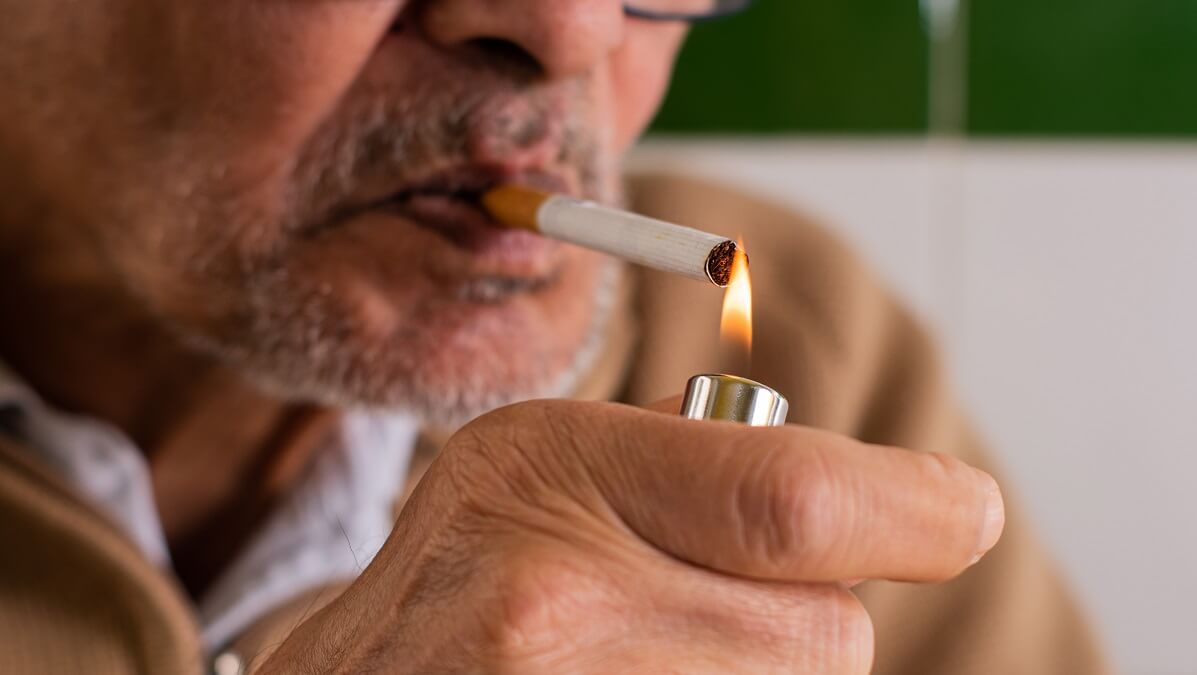Our grandkids may have several reasons to blame us for some of the problems they’ve inherited, among them a fragile climate and a poor standard of politicians, but one reason neither they nor most of us are likely aware of is asthma.
Yes, it turns out that the current generation of boys and men who suffer from asthma may be able to point an accusatory finger not to their father, but their grandfather.
The reason they can pin the blame on a person from two generations before – whom they might never have met – is not entirely clear, but it seems to lie within their genes. It all sounds a bit like the pitch for a science fiction movie, but there is some science fact at the heart of it.
Read: New pill could prevent repeat of thunderstorm asthma
Those facts can be found in the published results of a new study conducted by researchers from the University of Melbourne. The title of their report – Pre-pubertal smoke exposure of fathers and increased risk of offspring asthma: a possible transgenerational effect – provides the key word ‘transgenerational’.
In their longitudinal study, the researchers identified the middle generation – specifically the father as the link. If you were a smoker in your early parenting days and your son was exposed to second-hand smoke as a kid, his passive exposure would have increased his risk of developing asthma, and possible even emphysema.
Through a process not yet fully understood, that risk is passed on to his son, your grandson.
How do we know this?
We can thank the Tasmanian Longitudinal Health Study (TAHS), currently led by Professor Shyamali Dharmage, for providing this evidence. TAHS is one of the world’s largest repositories of health data, with collection beginning way back in 1968.
Read: Celebrating quitters: Give up smoking and save on your life cover
Looking at 1689 children who grew up in Tasmania, and also at their fathers and their paternal grandparents, the researchers compared data on whether the children had developed asthma by the age of seven years with data on whether the fathers grew up with parents who smoked when they were under the age of 15, and also whether the fathers were current or former smokers.
They found that if their fathers were exposed to second-hand smoke in childhood, the risk of non-allergic asthma in children increases by 59 per cent compared to children whose fathers were not exposed.
If the fathers were exposed to second-hand smoke and went on to smoke themselves, that risk increase rises further, to 72 per cent.
Hypothesising about the mechanism behind the increased risk, Prof. Dharmage said: “It’s possible that tobacco smoke is creating epigenetic changes in the cells that will go on to produce sperm when boys grow up.”
For men only?
You might have noticed a gender bias in this discussion – grandfathers, fathers, sons and grandsons – but what about females? There may well be a risk for them too, but this particular study was confined to male smokers, and the passive smoking exposure to their sons, and how that exposure affected the grandchildren.
Dr Dinh Bui, who led the research with Melbourne University colleague Jiachen Liu, says a mother exposed to passive smoking when she was in utero may also have an adverse effect on her children.
Read: Smoking, bedding, heating the strongest links to asthma
But their research suggests the ‘window’ of opportunity might extend further, Dr Bui said: “A mother, exposure during her in-utero life is a critical window of vulnerability. For fathers, exposure during their postnatal years to puberty appears to be important.”
The manuscript of the study was recently accepted for publication in the European Respiratory Journal, and provides further evidence of the long-term harm that can arise from a recreational habit many of us previously enjoyed.
Were you a smoker in your youth? Or were you exposed to second-hand smoke? Why not share your experience and thoughts in the comments section below?

